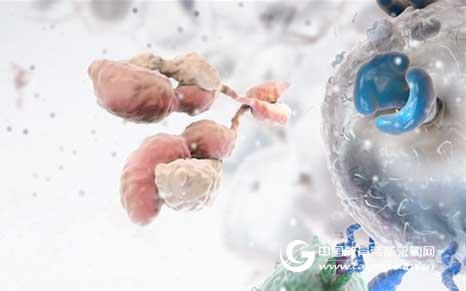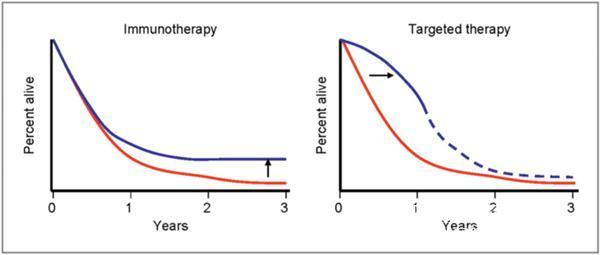Immunotherapy: four major trends worthy of attention in the future
Guide
Immunotherapy has gradually become a research hotspot in the medical field. Science has ranked tumor immunotherapy as the top ten scientific breakthroughs in 2013. So what is the future development of immunotherapy? This paper summarizes four trends worthy of attention in the future development of immunotherapy.

In 2010, the US FDA approved the supp cancer immunotherapeutic drug sipuleucel-T for clinical use. Until now, only four years have passed, and immunotherapy has made a series of exciting progress, which has become the focus of attention.
Because of their potential to treat a variety of cancers, and the ability to produce longer-lasting effects than radiation or chemotherapy, most large pharmaceutical companies are embarking on the development of immunotherapeutics, and they currently have multiple immunotherapeutics at different clinical trials. After decades of preclinical and clinical research, immunotherapy is rapidly maturing. This article summarizes four trends worthy of attention in the future development of immunotherapy:
1. Immunity status and immune score (Immunoscore) progressed significantly
Recent research reveals the value of patient immune status for prognosis and prediction. In a series of studies related to colorectal cancer, scientists conducted a comprehensive analysis of the number, type, and location of tumor-infiltrating lymphocytes in the tumor microenvironment, and found that the immune status—in these studies, the immune status was divided into Immunological score (Immunoscore) - is of great significance in determining clinical efficacy and long-term treatment success rate. Studies have shown that in addition to predicting the likelihood of tumor recurrence, immune status is a very useful tool to improve patient stratification management in clinical trials and to identify predictive biomarkers—both of which are effective for the development of effective immunotherapy It is important.
2. In addition to CTLA-4, new checkpoint blockers have made progress
Checkpoint blockers can induce the body's immune system to recognize and respond to cancer without triggering an autoimmune response, and have become one of the most popular cancer immunotherapy. Ipilimumab is the first FDA-approved drug that targets immunological checkpoints. It enhances the anti-tumor activity of immune T cells by inhibiting cytotoxic T lymphocyte-associated antigen-4 (CTLA-4). For the treatment of advanced melanoma. Currently, scientists are conducting a series of clinical trials to test the effectiveness of ipilimumab in the treatment of more types of cancers such as lung cancer, prostate cancer and pancreatic cancer.
In addition to CTLA-4 inhibitors, significant progress has been made in targeting other immunological checkpoints such as programmed death protein-1 (PD-1) and its ligand PD-L1 inhibitors, such as Shimei Squibb's Nivolumab and Merck's MK-3475. Among them, Nivolumab was awarded the breakthrough therapy by the FDA in May 2014. It is mainly used for the treatment of patients with autologous stem cell transplantation and brentuximab failure in Hodgkin's lymphoma (HL).
3, joint treatment has become the focus
Although current monotherapy has achieved good results in some tumors, the effectiveness is still low. Current research suggests that the combined use of immunotherapy may be more effective than when they are used alone. For example, a clinical trial conducted at the University of California, San Francisco, examined the efficacy of combined administration of sipileucel-T and CTLA-4 checkpoint blockers, and other studies tested PD-1 and CTLA-4 inhibition in melanoma patients. The combination of the agents proved that they showed positive results in a considerable number of patients.
This combination of different types of therapies may produce powerful treatments, and what we are seeing now is just the tip of the iceberg. Looking ahead, a more comprehensive understanding of the immune response and better identification of biomarkers predicting the success of treatment are key to the safe and effective development of combination therapy.
4. Prognosis and prediction of biomarkers are more critical than ever
In addition to effective therapies targeting PD-1 and PD-L1, a study published at the 2014 Annual Meeting of the American Association for Cancer Research showed the effectiveness of PD-L1 as a prognostic marker for melanoma and non-small cell carcinoma patients. Previous studies have shown that PD-L1 is over-expressed in a variety of tumors, which is closely related to the clinicopathological features and prognosis of patients, and becomes a new biological indicator for tumor detection and prognosis. The use of PD-L1 to assess treatment response has become a major trend in the field of immunotherapy, which can significantly improve patient stratification, advance the overall success of clinical trials, and drive the development of clinical treatment.
Use technology, research to deliver on promises

In short, these four trends reveal to some extent why the development of immunotherapy in recent years is optimistic. However, the future of cancer immunotherapy depends on scientists' more precise understanding of the interaction between cancer and the patient's own immune system. For example, researchers are trying to figure out why some patients respond to certain types of immunotherapy and not to other types of therapy. Scientists need better data, more advanced data analysis techniques, and better decisions to make successful outcomes at every stage of clinical research.
Although the challenge still exists, we can clearly see that cancer immunotherapy has gradually become clinical. Looking ahead, the right tools to provide big data analysis for biological organizations will ensure that immunotherapy truly revolutionizes cancer treatment and personalized medicine.
Shanghai Chuangsai Technology has excellent performance, interleukin cytokines, fetal bovine serum, electrophoresis equipment scientific instruments, raw material drug standards, chemical reagents, cell culture consumables, Shanghai Chuangsai, mass products special promotions, welcome to inquire!
Bread Baking Pan,Bread Pan,Loaf Pan,Bread And Loaf Pans
Xiongyang Household Co., Ltd , https://www.jmyjkitchen-manage.com